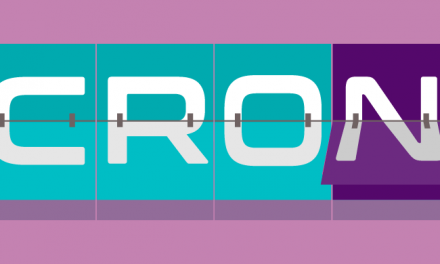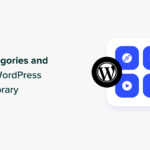As a WordPress developer, it’s important to keep up with all the new tools and skills emerging in your industry. WordPress is constantly evolving, with other developers releasing new plugins, frameworks, and build tools to make it even more robust. Learning these is necessary to staying relevant against growing competition.
Below are a mix of ten tools to try and skills to invest in this year. Some are basic life skills and others growing technical niches. Learning to master these will help you become a better developer and find more work as you bring something new to the table.
Version Control
Version control is a staple of web development projects. Thanks to tools like VersionPress and Gitium, it’s now easier than ever to integrate Git version control into WordPress installations.

If you don’t know what version control is or haven’t tried it before, now is definitely the time to pick it up. As a developer, sooner or later you’ll be part of a project where you’re expected to work with Git. Plus, it’s just a great tool for making your and your coworkers’ lives easier.
Version control is a system for tracking every single change made to a project, plus who made it and when. Not only that, you can also roll back the edits with the click of a button. No need to dig through and carefully revert code. On large development teams, this is absolutely crucial for tracking progress and undoing mistakes.
Git is the most popular version control system. It’s fast, versatile, open source, and relatively easy to learn.
Besides VersonPress and Gitium, WP Rollback can accomplish something similar. Even if you don’t want to integrate Git into your project — or are worried about using currently unstable plugins like VersionPress — you might like the features of such plugins.
SVN Version Control
If you’re diving into WordPress plugin development, the first thing you should pick up is Subversion. The popular version control system is the go-to tool to manage WordPress plugin releases. Consequently, you’ll need to learn it if you want to actively develop plugins.
A thing to note about SVN: It works very differently than Git. While Git tracks and can roll back every tiny change, Subversion is a release repository. Consequently, you should only commit finished changes that are ready for the public.
Thus, Git is more suitable for in-progress projects or ones where you need to keep track of everything that’s happening before release. SVN is also usually only for software like plugins or themes, while Git is more often the choice for web developers. Either can be a good choice to upgrade your WordPress developer skills.
Command Line Tools
WP-CLI is an amazing tool that lets you execute WordPress commands from a console. Want to access a file, schedule WP-Cron events, install a theme/plugin, execute PHP, or any of dozens of other functions? No need to log into WordPress or open up Filezilla to go digging through folders; just type a code into the command line.
As a developer, you need to make your workflow as efficient as possible. Once you learn how to use WP-CLI, you’ll never want to go back. Check out this installation guide for a few ways to get it running. While intended for Linux’s command line, you can also use it on Windows or other operating systems.

The one catch: your web host needs to support WP-CLI or have it installed already, and not all do. Talk to your host and see if they have the necessary permissions enabled.
Build Tools
Development is filled with constant time-consuming, menial tasks like compiling or code optimization. Build tools allow you to skip the most boring and lengthy tasks and get back to the important stuff. If you want to be a great WordPress developer — or a developer of any kind — you should learn to use build tools.
CodeKit is a popular choice, and probably among the easiest build tools to use. It gives you the ability to compile, compress, and optimize, and it works across browsers and devices. It also integrates with npm and allows you to import common front-end frameworks.
Gulp and Grunt are also two well-known Javascript task runners that automate repetitive steps. They work not just for JS but other languages as well and are the go-tos for many developers.

For a WordPress-specific solution, try out Roots. It includes a starter theme for easier development, a boilerplate, and a server to get WordPress set up fast. Other tools are still under development.
Gutenberg Block Building
Gutenberg launched back at the end of 2018, as a consequence, there’s plenty of demand for custom-made blocks. The ability to create them is going to be one of the central WordPress developers skills in the future, especially since the concept of blocks will soon spread to other parts of the platform.

If you’d like to try it for yourself, you should know that Gutenberg is built on Javascript and one of its libraries, React. Javascript didn’t play a huge role in WordPress development before Gutenberg, and React wasn’t a part of it at all. So, step one is to start brushing up on these skills.
While React isn’t technically necessary knowledge, you won’t be able to make the most out of your blocks without it.
Besides the documentation on React’s website, you can also take a free course to learn React on Codeacademy. They have a Javascript tutorial too. From there, you may also want to take an ES6 course as it’s a major Javascript update that introduced a lot of new functions.
If you already know these languages, or you’d prefer to just jump right into it, take a look at the Block Editor Handbook. It covers everything you need to know to get started building blocks. Or try this Gutenberg block tutorial.
Your new knowledge can be utilized in almost any way, no matter what area of WordPress development you’re interested in. Plugin developers can release block plugins, theme devs can incorporate them into their templates, and general WordPress web developers will impress clients by building them their own custom blocks.
Web Frameworks
Working with WordPress doesn’t have to mean writing code from total scratch. Instead, you can integrate web frameworks to speed up the process and create websites that are faster and have cleaner code. HTML, CSS, Javascript, and PHP frameworks are all compatible.
Here are a few front-end frameworks that work well with WordPress.
- Bootstrap
- React (also try Frontity)
- Laravel
- Foundation
- Semantic UI
- UIKit
As mentioned, Gutenberg blocks are built on React, so it and Javascript have been receiving a lot of attention lately. Try starting there if you need some direction.
There are also theme frameworks to consider if you’re building WordPress themes for a living and want to upgrade your developer skills. These work much like web frameworks, providing you a base to build off of and templates you can reuse.
You’re not just limited to writing basic code in WordPress. Experiment with all sorts of integrations and see how you can innovate.
Headless WordPress Development
What if WordPress could act as a back end to any type of website? What if you could use the familiar, well-organized CMS to publish blog posts, all while working with Ruby on Rails, Django, or any web language/framework you can imagine?
With headless WordPress, all this and more is possible. If you have a background in languages that normally don’t work with WordPress’ PHP back end, it’s now possible to combine your two skills and take the platform to new heights. Try out that framework you’ve always been interested in and combine it with WordPress to create an efficient headless blogging platform.

Want to try it for yourself? This tutorial tells you how to get a blank theme and set up the API. In many ways this is still uncharted ground, so there aren’t many resources online. However, you should be able to find enough tutorials to start experimenting.
SEO, Security, and Accessibility
SEO, security, and accessibility are the three big issues in web design, and that goes for WordPress developers as well. These aspects too often fall by the wayside, leaving a perfectly well-made website to struggle in the search rankings or fall victim to easily preventable hacking incidents.
As a WordPress developer, SEO skills are always desirable. While plugins like Yoast have made SEO optimization mainstream, especially when it comes to content creation, they don’t compare to what a skilled developer can accomplish on the technical end. (And with the Google algorithm constantly changing, staying up to date on the latest trends is more important than ever.)
If you’d like to learn more, search for technical SEO courses, such as this SEO course on Udemy, or Technical SEO with Bastian Grimm.
Security is another big one. WordPress as a platform has some notable security flaws, for example how easy it is to find a website’s WP version. A simple security plugin can cover some of a user’s bases, but knowing how to detect and patch common vulnerabilities could be a lucrative skill to have.

The best place to start is WordPress’ own security about page or their plugin security guide. There’s some good free reading material in these articles: WordPress Security As A Process and the Plugin Vulnerabilities blog. You could also try WPShout’s WordPress Security with Confidence course and Udemy’s Complete WordPress Security Course.
Final note: Accessibility. As a developer, a good portion of the task falls to you to make websites accessible. Read up on the Web Content Accessibility Guidelines and the Make WordPress Accessible blog. Other helpful resources include accessibility for theme developers, and this list of development tools. And remember that SEO and accessibility go hand-in-hand.
Financing, Online Communication, and Time Management
While it’s important to brush up on your technical skills, too many neglect their monetary, social, and time management abilities. A good portion of developers work from home or as freelancers, and these three skills are absolutely crucial to finding success.
If you struggle to communicate, can’t manage your finances, and just can’t find the time to get anything done, all the technical skill in the world won’t be able to help you. And even if you’re decent at these abilities, there’s always a little room to learn more.
The best thing you can do is a little research. A simple search for “communication skills for freelancers”, “time management for developers”, etc. can bring you hundreds of free resources. The hardest part is just sitting down to do it, so set aside some reading time.

You could even take an online course if you’re interested in learning more. Coursera and Udemy offer courses on just about anything. For example, here’s a course on Time Management for Freelancers, or Freelancer’s Guide to Self Employment Taxes, Budget, Savings.
It’s also a good idea to download online tools to help you manage time and finances. Programs like RescueTime can help you track what you’re doing while eliminating distractions, Slack can make teammate communication easier, Trello helps you track projects, Focusmate provides you with an accountability partner — the list of productivity tools goes on and on. There’s always something to make your work more efficient.
Upgrade Your WordPress Developer Skills Now
WordPress is a huge project and the development community surrounding it is constantly evolving. Picking up new skills is necessary if you want to stay relevant with the changing demands of your clients.
Version control, command line, and build tools are all very good investments. They take a little bit of learning but pay it back tenfold with massively reduced development time. Web frameworks, headless WordPress, and Gutenberg block building are all skills you should consider picking up if you want to innovate and push your career forward.
And of course, any developer can stand to learn a little more personal financing, communication, and time management skills. Taking a course or trying out a new tool in that area can be very good for your development career.
What technical skill do you think will be most important for WordPress developers in 2020? And if you could only learn one new skill this year, which is the best investment of your time? Let us know what you think in the comments.











